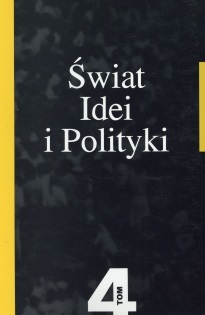Unia Demokratyczna i Unia Wolności: liberalizm chrześcijański - komunitaryzm i neoliberalizm?
DOI:
https://doi.org/10.34767/SIIP.2004.04.08Abstract
The late eighties and early nineties, despite other transformations, engendered an interest in liberal ideas as far as their intellectual and practical aspects were concerned, which was affected by both subjective and objective conditions. One should emphasize that the renaissance of liberalism was perceived in the latter part of the 20th century. After a long period of crisis, its ideas and their application became of great interest with politicians as well as political philosophers and the ideologists. At the same time, liberalism, in its classic interpretation, has never been a trend strongly existing in the consciousness of the Polish society. It was mainly a historical background that decided about such an opinion: a weak development of capitalism, political culture of the fight for the nation’s independence, and Poland’s dramatic history in the 20th century. The interest in liberalism also found its reflection in programs of political parties set up after 1989, and particularly those of "oppositional genesis”. The leading parties were: the Union for Real Politics and the Liberal Democratic Congress. It ought to be emphasized that liberal ideas were also reflected in program proposals of those political parties who identified themselves with such political ideas, e.g. the Social Democracy for the Republic of Poland and the Democratic Left Alliance. One should also pay attention to the fact that liberal ideas are differently interpreted, which may reflect global discussion on liberalism. On one hand, there could be noticed some tendencies to follow its neo-liberal character (e.g. the programs of the Liberal Democratic Congress), and on the other, one may perceive a tendency towards applying liberalism to the Polish conditions and social expectations. The evolution of the idea in the programs of the
Democratic Union may illustrate this fact, which has been presented in this paper.

